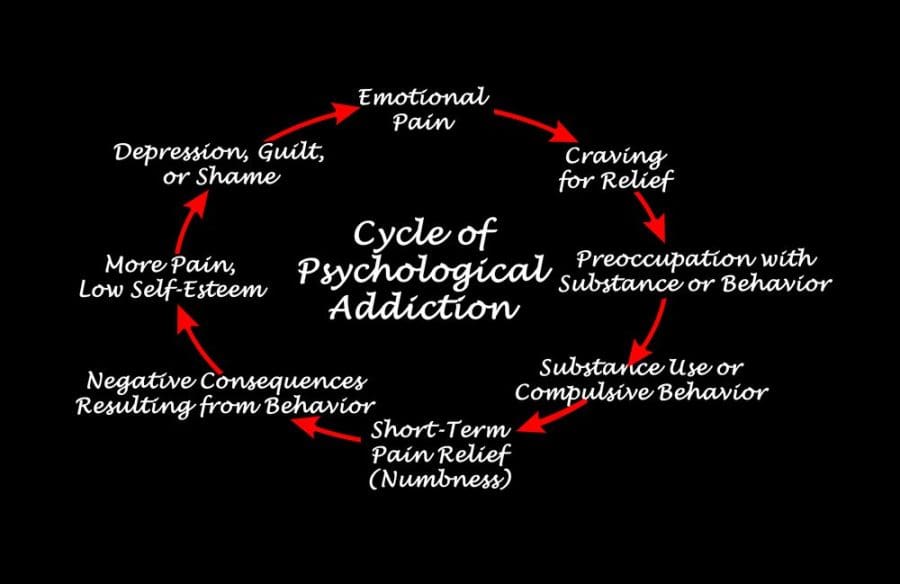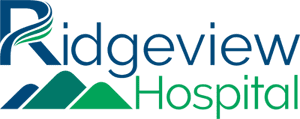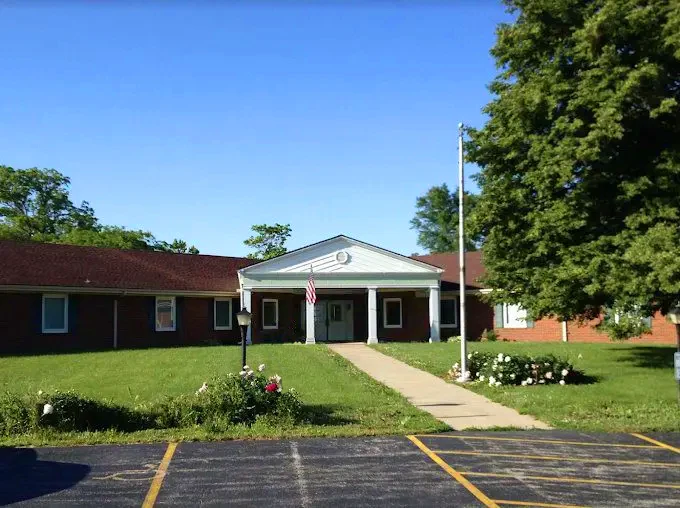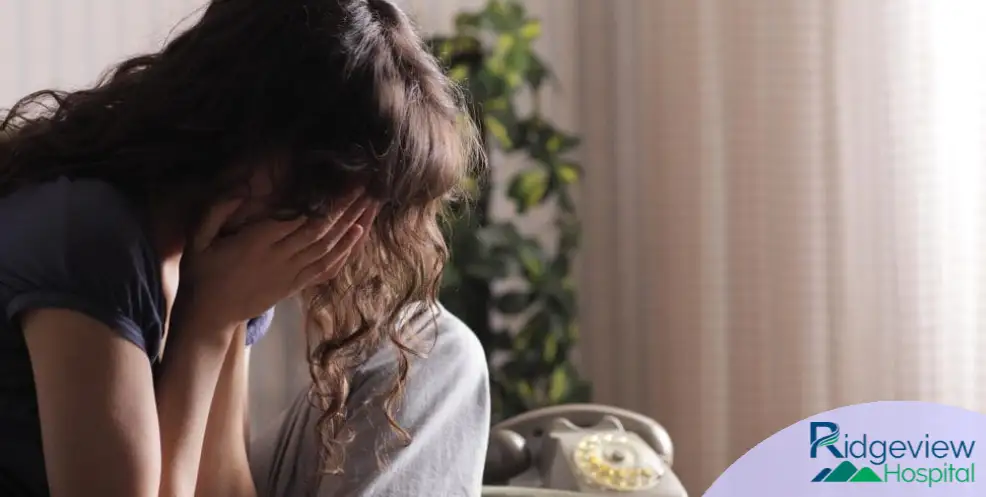Depression and addiction often work in cycles together. One may even contribute directly to another. Those suffering from depression have an increased likelihood of substance abuse while those with a substance use disorder are at an increased risk for depression. It’s a vicious cycle.
The majority of people with a depressive disorder who abuse substances do so to self-medicate. By abusing drugs or alcohol, they may find a boost in their moods or a reduction of negative feelings. At least at first. However, long-term use of these substances can trigger or escalate sadness, lethargy and other negative consequences. Moreover, as individuals become dependent on substances as a means of escape, it may prevent them from seeking treatment. In this guide, we’ll explore the relationship between depression and substance abuse, along with steps you can take to recognize the warning signs and how to seek help.
Understanding Depression
The World Health Organization maintains that over 300 million people suffer from depression around the world. In the U.S. alone, over 15 million adults per year experience episodes of clinical depression. Depression is more than just sadness. It has severe consequences on our daily lives, impacting our physical, emotional, and mental health along with our relationships, careers and financial wellbeing.
Sadness is a part of life. But along with ordinary grief, which occurs temporarily after a particular cause such as the loss of a loved one or tragic event, depression occurs for weeks—and even months or years on end. Consequently, depression increases the likelihood that a person will engage in substance abuse. Approximately one-third of depressed individuals have a co-occurring addiction that develops from self-medicating to ease feelings of sadness and despair.
The Problem With Self-Medicating
Alcohol and drug abuse are common among people with depression. However, chemical intoxication can actually worsen depressive episodes, making them not only more severe but also increase in frequency. For this reason, treatment for depression needs to address both addiction and mental illness to stop the mutual progression of both disorders and create a strong foothold for a healthier life. If you think you or someone you know may be self-medicating their depression, ask the following questions:
- Do you use drugs or alcohol to change the way you feel about something?
- Have you tried to limit your intake of a particular substance unsuccessfully?
- Do you use substances in higher than recommended amounts or dosages?
- Do you need to take more of a substance to achieve the same desired effect?
- Does your body experience cravings for drugs or alcohol?
- Does substance abuse interfere with your professional or social life?
- Do you engage in risky behaviors such as reckless driving or unprotected sex while under the influence?
- Do you spend a lot of time and/or money to procure substances?
If you answer yes to several of these questions, it’s a good idea for you to start a conversation with a mental health professional to see what steps you can take to get help.
Depression and Alcohol
Alcohol is by far the most common substance used to self-medicate. Since it’s legal and openly available, alcohol is commonly used to reduce stress. It may help temporarily relax the body and relieve stress, but in the long-term, serious harm to your neurochemistry can abound, creating a variety of health problems.

Researchers at the National Institute on Alcohol Abuse and Alcoholism have found a strong correlation between severe alcohol abuse and depression. In fact, nearly a third of all individuals suffering from alcohol dependence also have a co-occurring mood disorder such as depression.
Drinking can worsen depression. Alcohol itself is classified as a depressant. People who drink excessively experience more severe bouts of depression and even suicidal thoughts. Moreover, alcohol use can reduce the effectiveness of prescription antidepressants.
Depression and Marijuana Abuse
With its recent change in legal status, more people are turning to marijuana to self-medicate. Cannabis produces compounds that affect cognition, emotions, behavior, and motor control. Although the drug may temporarily ease symptoms of depression, it can also lead an individual to experience negative emotions, including sadness. Moreover, there is growing research to support a link between heavy marijuana and mood disorders. Some studies suggest that extended marijuana can lead to a substance use disorder.
Depression and Stimulants
Like other substances, stimulants can foster symptoms of depression. Because many people suffering from depression have histories of trauma and anxiety, stimulants may trigger complex reactions, including an increased craving for substances. Stimulants like cocaine and MDMA may induce short-term happiness but can lead to an even further depressed state once the high fades. This can lead to a person using more stimulants to achieve the same effects, creating a cycle of addiction. The stimulants most commonly abused by individuals with depression are:
- MDMA
- Amphetamines
- Cocaine
- Prescription stimulants like Adderall
- Methamphetamines
- Synthetic stimulants including bath salts
All of these substances are associated with changes in neurochemistry that can worsen depression symptoms and increase negative outcomes for people with mood disorders.
Getting Treatment For Co-Occurring Depression and Substance Abuse
It’s natural to feel helpless when faced with addiction. It can be particularly tough as a loved one watching a family member experience depressive episodes. Approaching this problem can be difficult. However, it’s important to take steps right away to mitigate the damage of these chronic conditions. Otherwise, a person will continue to get worse over time.
Honesty is Essential:
Before an individual can get help, they need to recognize that they have a problem. You can’t offer them false assurances. Depression is characterized by a cycle of decreased energy, low motivation, and an inability to make decisions. It’s hard for these people to see that there is light out there. Opening up to a support network is key, but it’s also vital to speak with mental health professionals.

Mental health professionals have the tools and experience to guide people through disorders. They can not only help the individual but family members and friends to understand what a person is going through and how they can help. Moreover, they can focus on specialized treatment techniques designed to treat both depression and substance abuse.
Treatment for Co-Occurring Depression and Substance Abuse
People with untreated mental health disorders often turn to substance abuse to self-medicate against negative symptoms. However, drugs and alcohol often worsen symptoms of depression and create additional health problems. Like other co-occurring conditions, substance abuse and depression work together to create a vicious, downward cycle. Only through a dual diagnosis treatment program can a person prevent the recurrence of either condition. So it is essentially that people find treatment plans that target both depression and substance abuse so they can have the tools and support they need to regain their health. Speak with a mental health professional today to get started now.
Start Your Path to Recovery
If you or a loved one are ready to start your path toward a better life, Ridgeview is here to help. Our treatment center, located near Middle Point Ohio, provides the highest quality care for both mental health conditions and addiction. Take our Mental Health Assessment.





















